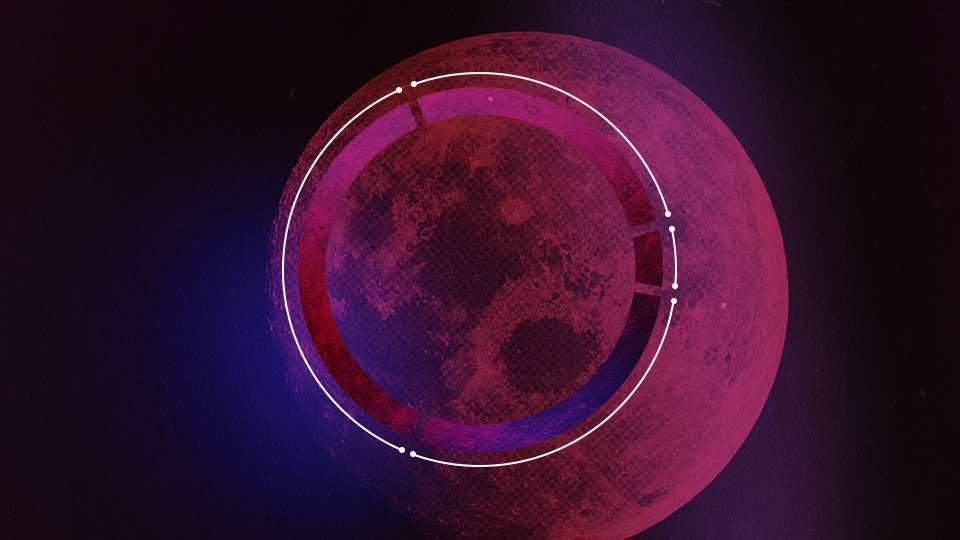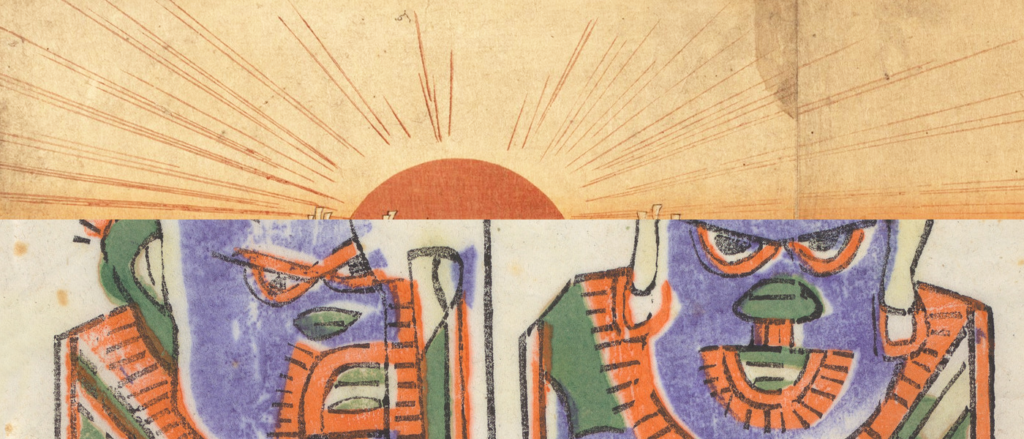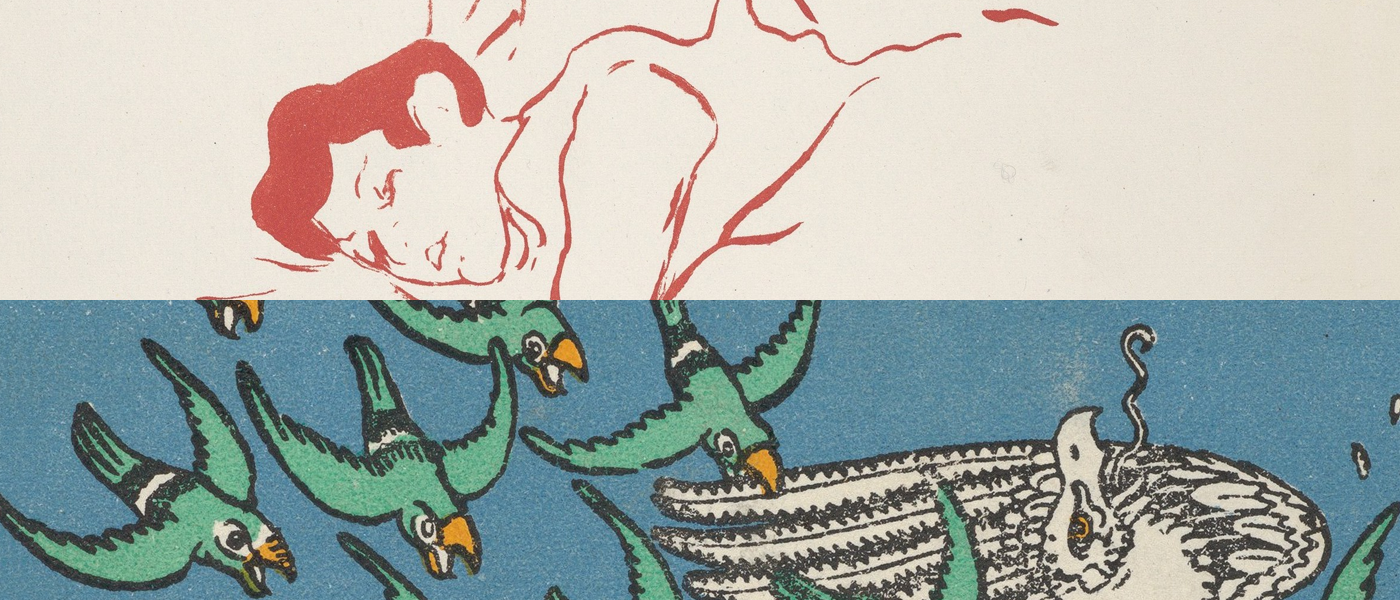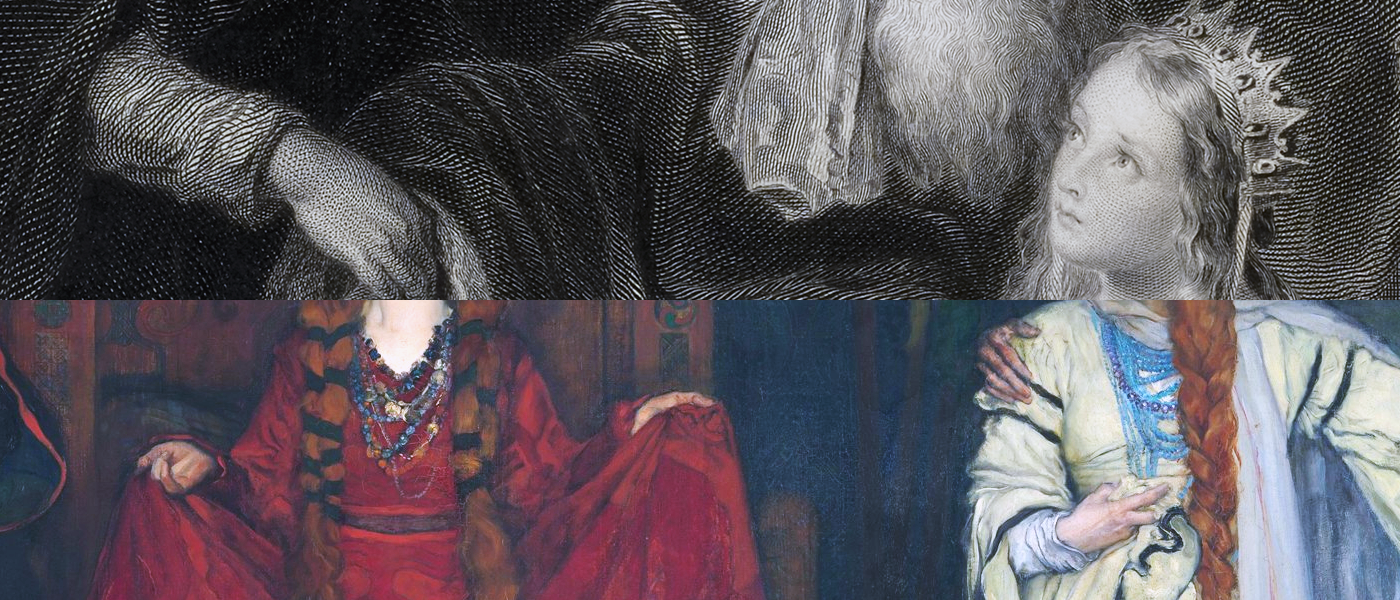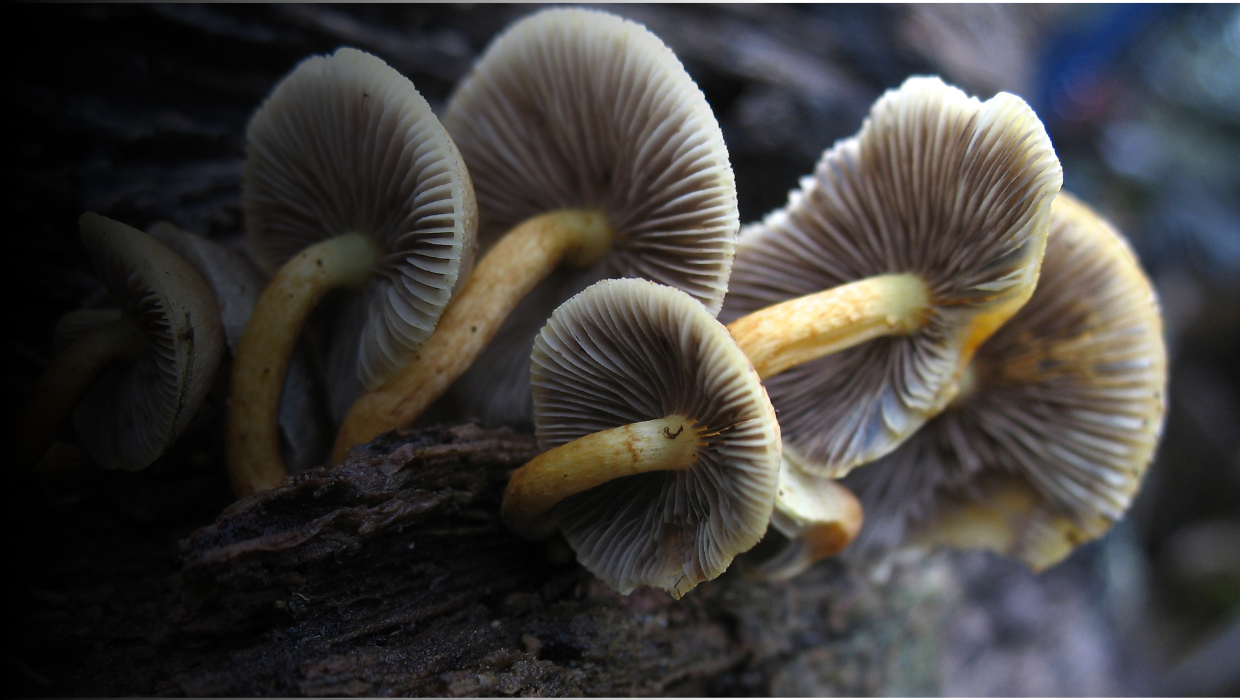INVOCATION (咒語)
In the beginning, what was my name?
I wish I knew where I came from. Before my mother had forsaken me, she left me with nothing — no heirlooms, no stories, no familial ties — not even the tip of my own tongue to pronounce my name. I exist without heritage. I wish my mother had lashed me to the ground with a coil of unbreakable rope, so that I could find my way back to the mouth of the river if I ever lost my way. But no such luck. I had, in her eyes, committed the ultimate sin: I had killed my former self, and left her a total stranger in my place. This man had her daughter’s eyes but none of her grace, and that bequeathed name meaning “precious beauty” had shattered like cheap glass on the pitiable ground. Murderer! she screamed as she chased me out of the house. Shame! You are a shame!
For thirty years I wandered the wilds, growing more feral with every passing day. Beasts fled at the sight of me, drained empty of all that was good and honest. No — not exactly empty. I was filled with questions: what lay in the precipitous path ahead? When would my body finally grow to house the shape of my ghost? Did I have a precedent? Was my soul renewed? Would my ancestors be glad to know me, or would they, too, forsake me in shame? Where can I begin?
SUMMONING (幻術)
The ghosts are rarely celebrated.
The newly deceased mortal remained at the foot of the Nàihé Bridge; he had not been given his proper funeral rites, and could not cross to be reincarnated. He had not even a name to call his own. Gradually, without offerings from his living relatives, this nameless ghost began to hunger. His eyes turned full-black, and he began to haunt the world of humans, desiring flesh, desiring a body.
Eventually he was subdued by the Great Zhōng Kuí, the venerable King of Ghosts who had barred the residents of his realm from feasting on mortals. As the nameless ghost lay hogtied on the ground, Zhōng Kuí began to address him like a stern father. You are not so far gone, Zhōng Kuí says, that you cannot be saved from your current state. But what possessed you, man? A young soul like you must have numerous offerings from your grieving family.
I have not, the ghost spat back. They would give me no such nourishment. You see that I have a man’s form, don’t you? But I was not born a man. For this, my family chased me out, anointed me the curse of their lineage. I died before I could even give myself a name.
Zhōng Kuí knew what it meant to be forsaken, so his heart softened in sympathy. You know who I am, don’t you, boy? I am the great demonslayer, the exorcist of malevolent spirits. From this point forward, I will teach you my craft, so that you, too, will have a place in this world.
PRAYER (禱文)
Laura is a name flogged into the backside of my hand, a scar that has never lost its sting. In the twenty-seventh year of my fragile life, I begin a quest for another name, one that my ancestors can use to call me should they wish to know me.
This is the summer I think I can get into witchcraft. I end up not learning anything about spellwork, but it doesn’t matter, it’s not my heritage anyway. Instead I grow steadily obsessed with building an ancestor altar. This is a difficult task; I no longer speak with my mother. All I know are the names of my grandfather and great-grandmother, on opposite sides of the family, and what I glean about altars from the few English-language sites that haven’t been updated from the early 2000s Geocities era is woefully contradictory. I look for possible gods to worship in tandem —
西王母, Queen Mother of the West, or 灶君, the Kitchen God. There is 鍾馗 Zhōng Kuí, the mortal scholar who, in death, became the King of Ghosts and protector of humans, and there is also 玄武 Xuánwǔ, another demonslayer – Zhōng Kuí’s near opposite. In life, Xuánwǔ was a bloodthirsty butcher who, to redeem himself for his sins, pulled his viscera from himself and washed them in the river, which ran black before it ran clear again. The gods were so moved by his self-sacrifice that they made him a god himself, the King of the North. I compile all this research into a messy Google doc, and yet, without direction, without knowing what I want from all this, the document gets pushed down in my rank of files, slowly slipping off the list of “recently opened” until it’s no longer recent at all.
I give up the venture. Another summer passes. I meet C., also Chinese and trans masculine, and we talk about our mothers often. About being disappointments to our family. The tragedy of a life where much of what was freely given to others — childhoods, expression, embodiment, love — was stolen from us. I think about that aborted ancestor altar, my way of creating a door to the ghosts who share my blood and likeness, and briefly consider that they may not want to meet me at all. I ask C., “Do you ever think about, like, if you came from somewhere?”
On the floor of my living room where they sit cross-legged, C.’s hands stop fidgeting. “What do you mean by that?”
“I mean.” I’m on Twitter far too often, and can’t stop referencing tweets that I saw last week. “Well, I saw this Twitter thread a while back where some white kid came out to her mom as bi, and the mom said, ‘That’s normal! I used to have crushes on girls my age all the time.’ Or someone else told an aunt that they were trans, and the aunt went, ‘So what, I also wanted to be a boy, but it was a phase!’ So many people in the replies relayed stories of their relatives telling on themselves. How queerness is genetic, and these things are inherited whether people know it or not. But I never got that a-ha moment, I never even got the smallest inkling of queerness from anyone, and you know, my mom never told me much about our family. She even used to make the cruel joke that I got switched with another baby at the hospital, and I was so different from her that I started to believe her.” I take in a shuddering breath. “So even though I know it’s near impossible, I’m starting to feel like there’s never been anyone like me in my bloodline. I — I’m starting to think I was brought here, alone, unbound, floating three inches above the Earth and frighteningly liable to fall out of orbit at the slightest calamity.”
After a long bout of silence, C. averts their gaze from mine. If I’m really paying attention, there’s something about their posture, the slight bow of their head, the defeated curve of their back, that telegraphs grief. “How can I not think about that, Laura?” they say quietly. “We all want to come from somewhere.”
That night, I dream of thunder. The storm swirls around me, and I understand immediately: gods are not created in isolation. They require grist — creation stuff — as we all do. So I crush my own name into pieces. I create my own grist.
But I am withholding. I am afraid of names; their power. I do not name him at first.
I am afraid of him becoming real.
GOD (神)
Zhōng Kuí’s apprentice learned quickly. All of the resentment he had built up from his mortal life, he sharpened into a new weapon of purpose.
With his long hair and hatchet-thick blade, the new ghost-killer cut an imposing figure. His ruthless reputation began to precede him; demons and malevolent spirits ran at the sight of him, fearing the total end of their existence. For his transgressions, for the sin of the obliteration of his own kind, his enemies would call him 妖 Yāo — evil — for which we name malevolence that has no body to call home.
There was just no accounting for the ghosts he’s killed. For the boar-faced one he received a tusk gored to the gut, though he returned the trouble in kind, sword turned into ordinary butcher’s knife. And to mark him for his terrors, the one-eyed, one-legged hopping devil tore the skin across Yāo’s nose, staying a permanent line that hewed sight from speech. So on and so forth, a gash for a gouge. All of these wounds remained on his body, because while he could not die from them, he could not erase them, either. Who else would carry so many holes on their body? Unless you were the hole yourself, unless you were emptiness without a name.
Yāo took on the scars, he took on all of them, and more. It was his form of penance. When they name you evil, sin itself, that is exactly what you become.
GHOST (鬼)
Sixteen is the age I start to feel disembodied. The curse is cast by Ghost in the Shell, which I buy off eBay in some chunky black DVD case. In the dark secret of my room I watch Major Kusanagi feel unreal, and then become unreal, and then become something else entirely.
As my body morphs into adolescence, I watch a lot of anime, especially the ones about Japanese gods and folklore. It’s just close enough to my own culture to seem familiar but not close enough to hurt. I grow obsessed with names, not only because I hate my own, but because of this recurring idea across these stories that if you name something, you give it power. Laura, Laura. I know my grandfather named me for a laurel wreath — victory. It’s an invocation I’ve never been able to shake.
In the morning, Māmā sticks her head in my room and knocks on the door, belatedly. “小鬼,” she says. A common Chinese moniker for children meaning rascal, but literally, it translates to little ghost. She uses it so often that it’s become my de facto nickname. “Get ready soon. Your swim meet is in an hour, and I want to drive you there early so that you can get a good warm-up.”
“Alright, alright.” I shoo her out of the room. I don’t even know why she’s so insistent, she doesn’t even like that I swim. She keeps complaining that it’s making my shoulders too wide, my arms too big, that I look too much like a man. She doesn’t know that I enjoy the growing musculature of my body, though I don’t understand why yet. Actually, I do know why she wants me to swim well — she thinks that it’ll get me a college scholarship.
In the locker room before the meet, the other girls gossip amicably between themselves, swapping stories of homework and school scandals, but I am alone, silent, observing my poly-spandex-blended form in the mirror. Māmā is right; my shoulders are growing wide, but it’s not enough. Before I knew it, time had changed my body into something beyond my recognition, and now, I am yearning for backwards momentum. I imagine that, in my reflection, I can see the shape of my soul, and it is big, larger than anyone would know, bleeding out the edges of my own outline. When will my body grow to fit the size of me? To shoulder the weight of everything I have to carry, before it dovetails into hopeless hourglass.
None of the other girls have to worry about this, I bet. We line up at the starting blocks, and all of their faces are set in a perfect picture of focus, drive. Not me. When I dive into the water, I choke. I imagine myself drowning. Treading water, my arms flap against the current uselessly, sending chlorinated spray upwards in arcs. In reality, I am simply fucking up — my leg seizes into a cramp, and I can’t recover the time and distance. The medals and podiums slip out of my grasp, and vaguely, in the faint buzz of my brain, I realize: this is not where I belong. Water is yīn. It is dousing my flame.
Defeated and huddled in a towel, I trudge back to the locker room, only to be intercepted by my mother. Her arms are crossed, and while I can’t ever remember her being warm to me, the denial of a simple embrace is its own devastation in this moment. “You really disappointed me today,” she snaps in Mandarin. A private rebuke, just for me. The other girls filter in and out of the door, laughing, chattering away. Māmā continues: “What’s the point of paying for lessons if you never win?”
This is when I know that Laura is not my real name. Her words flay me alive, strip my soul from flesh and abandon it in some cruel arc of space, out of orbit; in this moment I am more like a little ghost than anything. Nothing solid to hold me down to earth. If you name something so many times, you give it power. You make it so.
MAN (男)
Hearing of his protege’s condition, Zhōng Kuí recalled Yāo to his side. This will not do, he told Yāo sternly. You cannot continue carrying around your body in such a haphazard manner. For why do you have a body if you do not care for it as if it were your own?
Yāo remained silent. He dared not talk back to his preceptor, but he possessed no desire to piece himself back together again. Tissue was coming undone; his skin flapped against open wounds like a curtain in the wind, exposing the coiled muscle and sinew with every small movement. So Zhōng Kuí commanded him, you will not take on any new jobs until you see this body through. There is only one way to fix this. Go back to your beginning, Yāo. Traverse the waters home.
But I don’t have anywhere that I’m from, he protested. Zhōng Kuí responded: you will find your answers at the source. Find the mouth of the river speaking truths and destinies. Bring me your body, your corpse, your name before names.
WOMAN (女)
Māmā always said I had too much yáng energy. I was born at noon, so I sucked up all the sun’s rays, and now I radiate that energy everywhere I go. “You came out of me so jaundiced,” she told me, “that I had to keep you in a crib by the south-facing window. Kissing sunlight day-in and day-out. And once you grew up, you refused to come back inside. You rough-and-tumbled outdoors for so long that your skin burned brown, and you no longer looked like me, even though I was proud that we shared the same face.” Yes, Māmā, it’s true — I loved summer so fiercely it consumed me. There was no more space for yīn, so the fire ate the girl alive inside.
This tomboyishness was amenable as a child, but certainly not now, as I approach the doorstep of puberty. In the shadow of womanhood, Māmā finds everything I do intolerable. “Girls must not misbehave like this,” she scolds. “You must be like me, you must sit still and be obedient enough for your future husband.” She thinks force can subdue me. Leaves all of her anger in slashes across my face. Brings out the rod so many times that it comes to know me intimately, like a friend, and I feel sorry for the way it’s used to hurt me. Every little thing I do is so unforgivable. She breaks me down — grist — except there is no one around to put me back together again.
My one respite is the bath. Māmā is gone all hours after school working, so I have the house, much too big for one child, to myself. In my small man-made pool, I cry my heart out for hours, the water of my body joining other water. I often pray for someone to come rescue me. I try to summon the supernatural; maybe some god or demon will take pity on me.
Later I come to understand the one that will rescue me is my future self, looking back and throwing down ropes where I can. Later still, the man I invent in my head comes knocking, whether I want him to or not. He starts to haunt my peripheral vision. He appears in my dreams, begging creation.
So I do it. I make him real.
DEMON (魔鬼)
This is where Yāo finds me: in the sluice between time and space, in a room within a dream. Separated by a gulf of two thousand and five hundred years, my bloodline leads directly back to his.
In this dream, he is on a skiff upriver; I am a seven-year-old girl locked in a windowless room, though in present day, I am no longer seven and I am no longer a girl. Yāo regards me with blackened eyes, so pitch with void that they look like the sockets entirely. Or mud, or yawning night. He says, you entered through the mouth, didn’t you. That is the common way, otherwise return from where you came, Laura, before return becomes too late.
My juvenile nose scrunches the way it might when an older sibling intrudes upon a private space. What mouth?
He points backwards — the land distant, towers like trees. The tributary, he says, the mouth of the Huángpǔ, the river where you and I and our people were born. That is the crossing between worlds, where your life can touch mine.
I’m not very much interested in his words — instead, the way he speaks. How he holds his body, soft at the waistband, stiff at the neck, totally on guard when no danger presents itself. His shirt is loose. Open at the chest to reveal both its flatness and its ridged musculature. And yet his hair is as long as my mother’s. Longer, even. I imagine Yāo gleaming sword forward, singing through the bodies that come forth to halter him. Behind his seat at the bow, moon hangs red, staining us the color of Martian dust. The river bed is thick, slurried with silt. Everything slow. We travel upstream, against gravity. Why are you here? I ask him.
The Great and Honorable Zhōng Kuí has assigned me the unenviable task of mending my body, for which I must travel up this mountain. But Yāo does not look ecstatic to say this. Instead, his gaze travels far away, rounding the boat along a hazy bend. When we hit a rare spot of treeless moonlight, I can see him plainly: an injury made total, as an eclipse eats daylight.
My mouth gapes open. What happened to you? Did the bad guys get to you?
His dark eyes bleed into mine. Children should not ask such presumptuous questions.
I am not a child! I shout petulantly. You sound like my mom. All cagey with how you think and feel… but then you blame it all on me instead. Like you can’t handle the enormity of yourself, so someone else has to take the fall.
Something in his expression changes. I apologize, he says quietly. If you must know, I was reckless with the body that I was given. I took every hit and blow like it was a punishment that I was owed. I… He invents some excuse to find a point of interest on the horizon. I had become acclimated to it. The punishment, that is.
For a child, I nod sagely, as if I recall my own future. I know how that is, I tell him, I know how that is completely. I show him my own scars, the ones I will come to accrue over my lifetime, the bruises on my thighs, and the invisible marks that had once lifted themselves from skin but have since sunk back in, disappearing into the landscape as if no disaster had ever occurred.
His cold, pale fingers reach out and touch the raised cliff on my knee. I’m sorry, Yāo says.
I’m sorry, too. His apology reminds me of the adult I want to become, like those anime heroes I’d always loved. He looks like he belongs in a show where the war is over, and everyone comes together to rebuild their lives. I reach forward and tug on his sleeve. But, you know, even though you’re in rough shape, I’m still envious. I wanted shoulders like that once, too. I wanted to be tall like you. But I stopped growing in all the places I wanted to, and in the places I didn’t want to…
A realization seems to click in his head. You’re like me, aren’t you, Laura. When I ask what he means, he says: your body is not your own, but your mother’s.
I consider this. Yes, that is true. And I have been a poor tenant of it — shearing off hair, tumbling and scraping knees, wearing a boyish bravado too large for me. For a long time, walking around with a corpse inside. I was a name before a name.
The overhanging willows obscure us again, and Yāo’s face disappears in shadow. I wonder if he knows that his lack of expression makes him look like the carved-out side of an orange peel. Go on, he says, tell me more. About you, but also myself.
Oh, that’s right — because we are the same. When we re-emerge in open air, Yāo’s eyes are shut. In this dream, he is dreaming, and he is traveling down a river bisecting the fruit of the world. So I tell him, once, you climbed trees fiercely. You spat your name with rancor. You took the body of your mother’s body and put so many holes in it that it gasped for air and swallowed whole everything that lay in its path — swallowed even the sun. And remember how you cried? All snot-nosed and ugly… Māmā slapped you across the face for it. Left a mark across your nose. How unattractive, she sneered, as if you were not hers at all. It made you believe you weren’t. It made you believe that you were not loved by anyone at all.
For thirty years, you wandered alone in the forest, growing feral. Beasts avoided your step; they knew what you were. You hurt yourself; you were the only one you could target with your rage, a victimless crime. But all that went nowhere. The knives you carried grew heavy, and eventually you had to set them down. Through all that heartbreak, you learned something, something vital — that your body is the only thing you can ever truly own. And rather than carrying it like a burden, you can choose to take it with you on a journey. One where you will make a vow with yourself, that you will love your body no matter what it becomes, or how it emerges at the other end of it.
We are nearing the end. Something inside me shifts — no longer a child, but aware of it all. One consciousness in the dream, the other outside of it. How I have to bridge the gap. Love dawns on me all at once. Of course, I need not be afraid of my ancestors anymore — or else, why would I be here? The altar ghosts love me for the simple fact that I am theirs to love. Gently, I rest my open palm on Yāo’s chest, still mottled with old pains, and my skin sinks into his, permeating our barriers. He stirs slightly at my touch. I know what I must do.
Yāo, I ask him, do you know? You wear man so well that I’m jealous of it. Do you believe in summoning? How I wanted your body for so long that it started to visit me in my dreams, that it started to seek me out on its own volition… what would you call that?
Finally, he opens his eyes. I would call it a beginning. A home worth caring for, as if it’s your own.
Yāo rescues me from my mother’s arms. He drags me through the bramble, twigs and thorns drawing red across my skin, through all the swamp and mud that occupies the land. Here, he says, wear me. My body is yours, your name is mine. Say it with me. Yāo, like ghost. Like something that shouldn’t exist, but does.
LOVE (愛)
At last, we reach the mountaintop. The source, the end, from which all other water spills forth. We arrive just as a line of light at earth’s horizon splits night into dawn. At the river bank, at the junction where bleeding sun meets unctuous earth, the god Xuánwǔ stands barefoot, pulling his intestines from himself and washing them clean in the crisp stream. The boat stalls. He looks up from his work.
You’re already here, Xuánwǔ says. I was expecting you, but damn, you’re early. Here, hold this. He hands us the long, slippery length of organ, from the black, gaping hole of his body, in the bowel of his bowels. Like a grey, slippery worm, it squishes in Yāo’s hands. It’s as heavy as my own body.
Can you carry it?
Yes, I can. He tells me to carry them for just a bit longer. Under the sun’s heat, you lift me from the warm-baked clay, still soft. You excavate me from me, the crooks of all my limbs, the bends of all my rivers.
